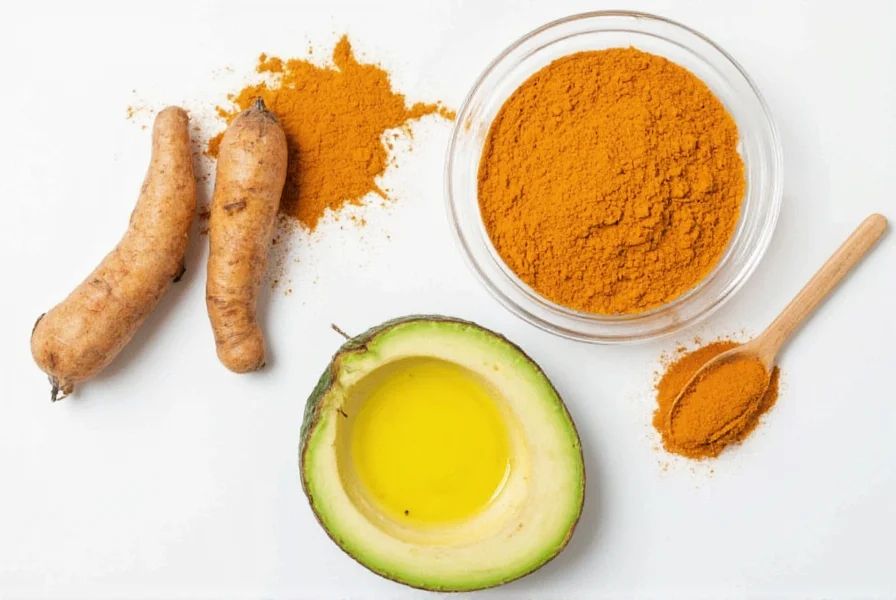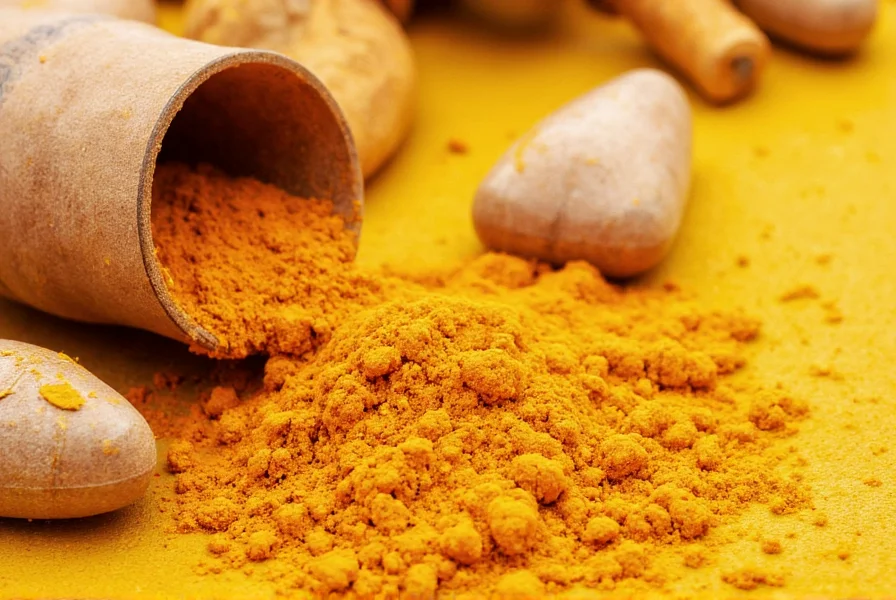The optimal time to take turmeric depends on your specific health goals and formulation. For maximum absorption of curcumin, the active compound, take turmeric with a meal containing healthy fats—ideally at breakfast or lunch. This timing leverages natural circadian rhythms for inflammation management while avoiding potential sleep disruptions. If using standard turmeric powder, consume it with black pepper and fats like avocado or olive oil. For enhanced curcumin supplements, follow label instructions but generally avoid taking within 2 hours of bedtime due to potential mild stimulation.
Understanding when to take turmeric properly can significantly impact its effectiveness. As a widely studied natural compound with potent anti-inflammatory properties, timing your consumption strategically enhances bioavailability and aligns with your body's natural processes. This evidence-based guide examines the science behind optimal turmeric timing for various health objectives.
The Science Behind Turmeric Absorption
Turmeric's primary active component, curcumin, faces significant bioavailability challenges. Research shows that curcumin alone has poor absorption, rapid metabolism, and quick systemic elimination. The key to maximizing benefits lies in understanding how timing interacts with these biological factors.
Curcumin is fat-soluble, meaning it requires dietary fats for proper absorption. Studies published in Food Science & Nutrition demonstrate that consuming turmeric with healthy fats increases curcumin absorption by up to 2000%. This explains why traditional Ayurvedic preparations often combine turmeric with ghee or coconut oil.

Best Timing Strategies for Different Health Goals
Your specific health objectives should guide your turmeric timing strategy. The circadian rhythm of inflammatory markers provides valuable insight for scheduling consumption.
| Health Goal | Recommended Timing | Scientific Rationale |
|---|---|---|
| General inflammation management | With breakfast or lunch | Aligns with natural cortisol peaks that regulate inflammation |
| Joint pain relief | With evening meal | Provides overnight support during natural inflammatory peaks at night |
| Cognitive support | Morning with breakfast | Supports daytime brain function without disrupting sleep cycles |
| Digestive health | 30 minutes before meals | Stimulates bile production for improved digestion |
When to Take Turmeric With Food vs. Empty Stomach
The question of whether to take turmeric with food represents one of the most common timing dilemmas. Current research provides clear guidance:
For standard turmeric powder or culinary use, always consume with food containing healthy fats. Taking turmeric on an empty stomach may cause gastrointestinal discomfort in sensitive individuals and provides minimal absorption benefits. The presence of dietary fats triggers bile release, which emulsifies curcumin and dramatically improves absorption.
For enhanced curcumin supplements (those containing piperine from black pepper or phospholipids), follow product-specific instructions. Most manufacturers recommend taking these formulations with a light meal rather than a heavy dinner to avoid potential sleep disturbances from the piperine component.
Optimal Daily Scheduling for Maximum Benefits
Creating an effective turmeric timing schedule requires consideration of several factors. The best time to take turmeric for inflammation management typically aligns with your body's natural inflammatory cycles.
Morning consumption (with breakfast) supports your body during the natural inflammatory peak that occurs in early afternoon. This timing proves particularly beneficial for those managing chronic inflammatory conditions. For individuals experiencing significant joint pain at night, an evening dose with dinner provides targeted overnight support.
Split dosing—taking smaller amounts twice daily—often yields better results than single large doses. This approach maintains more consistent blood levels of curcumin throughout the day. For example, take half your daily dose with breakfast and the remainder with lunch for optimal daytime coverage.
Common Timing Mistakes to Avoid
Many people unknowingly undermine turmeric's effectiveness through improper timing. The most frequent error involves taking turmeric without sufficient fat content, reducing absorption to negligible levels. Another common mistake is consuming turmeric too close to bedtime, which may interfere with sleep quality due to mild metabolic stimulation.
Avoid taking turmeric supplements within two hours of medications, particularly blood thinners or diabetes medications, as timing affects interaction risks. Consult your healthcare provider about appropriate spacing if you're managing specific health conditions.
Consistency matters as much as timing. Irregular consumption prevents maintaining therapeutic curcumin levels. Establish a routine that fits your lifestyle for sustainable long-term use. The best time to take turmeric with black pepper follows the same principles as standard turmeric—always with fats and preferably during daylight hours.
Special Considerations for Different Formulations
Not all turmeric products require identical timing approaches. Understanding your specific formulation helps optimize consumption:
- Standard turmeric powder: Take with meals containing 5-10g of healthy fats
- Curcumin with piperine: Morning or early afternoon dosing prevents sleep disruption
- Liposomal curcumin: Can be taken without food but still benefits from morning consumption
- Whole turmeric root: Best consumed cooked with fats for maximum curcumin release
When determining when is the best time to consume turmeric for your specific needs, consider both the formulation and your individual response. Some people experience mild gastrointestinal effects initially, which often diminish with consistent use. Start with smaller doses and gradually increase while monitoring your body's response to different timing strategies.
When NOT to Take Turmeric
Certain situations warrant avoiding turmeric consumption altogether or adjusting timing significantly. Do not take turmeric:
- Within 2 weeks of scheduled surgery due to potential blood-thinning effects
- When experiencing active gallbladder issues without medical supervision
- Concurrently with certain medications without consulting your healthcare provider
- During pregnancy in medicinal doses (culinary amounts are generally safe)
For those taking blood pressure medications, monitor levels closely when starting turmeric supplementation, as timing affects interaction potential. The optimal turmeric dosing schedule may require adjustment based on your specific health profile and concurrent treatments.
What's the best time to take turmeric for inflammation?
The best time to take turmeric for inflammation is with breakfast or lunch, ideally paired with healthy fats. This timing aligns with your body's natural inflammatory cycle, which peaks in the afternoon. Morning consumption allows curcumin levels to build before this peak, providing optimal anti-inflammatory support when needed most.
Should I take turmeric on an empty stomach or with food?
Always take turmeric with food containing healthy fats. Curcumin, turmeric's active compound, is fat-soluble and requires dietary fats for proper absorption. Taking turmeric on an empty stomach reduces absorption by up to 90% and may cause gastrointestinal discomfort in sensitive individuals. A meal with avocado, olive oil, or nuts provides ideal conditions for maximum bioavailability.
Can I take turmeric at night before bed?
It's generally not recommended to take standard turmeric supplements within 2-3 hours of bedtime. The piperine often added to enhance absorption may cause mild stimulation in some people, potentially disrupting sleep. However, if you're using turmeric specifically for nighttime joint pain relief, take it with your evening meal rather than right before bed to allow proper digestion and absorption.
How does timing affect turmeric's absorption with black pepper?
When taking turmeric with black pepper (which contains piperine), timing becomes particularly important. Piperine enhances curcumin absorption by up to 2000%, but it may also cause mild stimulation. For this reason, the best time to take turmeric with black pepper is during daylight hours, preferably with breakfast or lunch. Avoid evening consumption if you're sensitive to stimulants, as this combination might interfere with sleep quality for some individuals.
Is there an optimal schedule for taking turmeric twice daily?
Yes, for twice-daily dosing, take your first dose with breakfast and the second with lunch. This schedule maintains more consistent blood levels of curcumin throughout your waking hours when inflammation naturally increases. Avoid taking both doses close together or one right before bed, as this doesn't provide optimal coverage during peak inflammatory periods and may disrupt sleep patterns.











 浙公网安备
33010002000092号
浙公网安备
33010002000092号 浙B2-20120091-4
浙B2-20120091-4